Over the years, you’ve probably seen companies embrace Pride Month through advertising campaigns — including rainbow flag logos and even limited-edition items like Skittles’ colorless candy. But it wasn’t always like this — LGBTQ-inclusive ads only really started to appear in the ‘70s. It was vodka brand Absolut’s introduction of its rainbow bottle in 2009 that was a “tipping point” for Pride Month marketing with other brands’ campaigns starting to “slowly trickle out” soon after, explained Kristin Comeforo, an associate professor of communication specializing in LGBTQ representation in mainstream marketing. Since then, “what has changed is that being supportive and inclusive of LGBTQ+ community is more the rule rather than the exception,” Comeforo said.
SKIP AHEAD Notable products from LGBTQ-owned businesses | LGBTQ-owned brands
But for some LGBTQ-owned businesses, the attention during June doesn’t necessarily mean big business. “Pride Month has been commandeered by big mainstream retailers producing Pride collections,” said Laura Moffat, one of the founders of menswear-inspired clothing label Kirrin Finch. And while this can “bring visibility to the queer community,” it doesn’t “translate to small queer businesses getting more sales.” But as a brand, “we don’t do anything different in the month of Pride versus any other month as we are LGBTQ+ all year long and serve that community all year long,” Moffat added. On the other hand, the spotlight offers the potential to “reach so many new people,” explained Helen Russell, a co-founder of Equator Coffees. “The focus on LBGTQ+ owned businesses and our impact is great exposure. It exposes our community to not just new customers, but new allies.”
June commemorates the 1969 Stonewall uprising — 2019 marked the 50th anniversary of when police raided West Village gay bar, the Stonewall Inn, that helped ignite the modern-day LGBTQ rights movement. “Every June we celebrate our survival, how far we have come, while also continuing to call out inequities, discrimination, and violence targeting the LGBTQ+ community,” explained Comeforo.
LGBTQ-owned businesses in 2021
There are an estimated 1.4 million LGBTQ-run companies in the U.S., accounting for $1.7 trillion a year in revenue, according to the National LGBT Chamber of Commerce (NGLCC).
While there are some programs aimed to help minority- and women-owned enterprises and entrepreneurs, LGBTQ-owned businesses aren’t offered the same resources. Bob Witeck, president of Witeck Communications, the first certified LGBTQ business in the U.S. by the NGLCC, said federal data collection, inclusion and protection of rights for LGBTQ business owners and employees is an important issue since opportunities and inclusion may vary by state. “LGBTQ people are defined in their families and their lives by arcane rules state by state,” he said, adding that LGBTQ businesses may be facing “anxiety and difficulty with things like credit and credit lines, lending, borrowing” due to unequal access. Justin Nelson, NGLCC’s president and co-founder, previously told NBC OUT that for LGBTQ-owned businesses to succeed, they must have fair access to capital and credit, which federal data collection would support.
Recent progress
Locally, some municipalities and private companies have been enacting their own appeals to LGBTQ-owned business owners. Earlier this year, New York City partnered with the chamber to become the largest city to officially designate LGBTQ-owned companies as minority-owned businesses, meaning they’ll be eligible for billions in city contracts and other resources like educational programs.
In April, more than 400 businesses — including Apple and Facebook — signed their support for the Equality Act, which would change existing civil rights law to include protection for sexual orientation and gender identification — the bill is awaiting a Senate vote and it’s unclear when it will be voted on. The pandemic has also disproportionately affected the LGBTQ community, which already faces higher rates of discrimination in housing and employment. Some LGBTQ-owned businesses, among them lesbian bars, were already struggling pre-pandemic — the pandemic has only made the situation worse.
What is an LGBTQ-owned business?
The NGLCC defines an LGBTQ-owned business as being at least 51 percent owned, operated, managed and controlled by a person or person who identify as part of the LGBT community (including non-binary and gender non-conforming individuals). The nonprofit serves as the third-party certifying body for Certified LGBT Business Enterprises (LGBTBEs), which provides networking opportunities, mentorship, leadership training and scholarship programs to LGBTQ business owners who meet the above criteria. The process is extensive yet concise:
- You first build your profile on the website and submit supporting documents
- A visitor from the NGLCC will verify the information you provided during a site visit
- The organization’s National Certification Committee reviews your application and, if eligible, provides a certification
There are currently 1,678 certified LGBTBEs — a national database can only be accessed by certified LGBTQ businesses through the NGLCC. However, the nonprofit’s 52 U.S. affiliate chambers (and 11 internationally) each have regional directories that include both certified and LGBTQ- and ally-owned businesses. Many of NGLCC’s 25 government partners like Massachusetts and Pennsylvania list LGBTBEs in their respective city/state databases.
Notable products from LGBTQ-owned businesses in 2021
The following are nine standout items from LGBTQ-owned businesses, ranging from a Pride-themed candle set whose profits partially go towards an organization focused on LGBTQ youths to a toasted caramel simple syrup and leopard-printed swimsuit.
Bokksu Monthly Subscription Box
Danny Taing, founder and CEO of Bokksu, said he started his company when he couldn’t find his favorite local Japanese snacks in the United States after living in Japan. “As an Asian-American with deep roots in both identities, I saw a big opportunity to bridge both Asian and American cultures and share Japanese culture with the world,” he said.
Running his company, Taing said “it sometimes feels very daunting because many investors and partners don’t immediately relate to me and Bokksu. I’m a gay Asian man running an Asian company, which can be outside of the comfort zone for some Americans.” However, he noted, “Being gay has also helped me find tightly-knit peers and support,” and that over time, he’s made friends and created a network with business owners of shared backgrounds.
Bokksu partners with centuries-old snack-makers across Japan to bring customers authentic food, from mochi to senbei cookies. You can purchase snacks, tea and kitchenware from Bokksu’s market, or purchase the company’s subscription box. Each box comes with Japanese snacks, candies and a tea pairing curated around a cultural theme, as well as a related magazine.
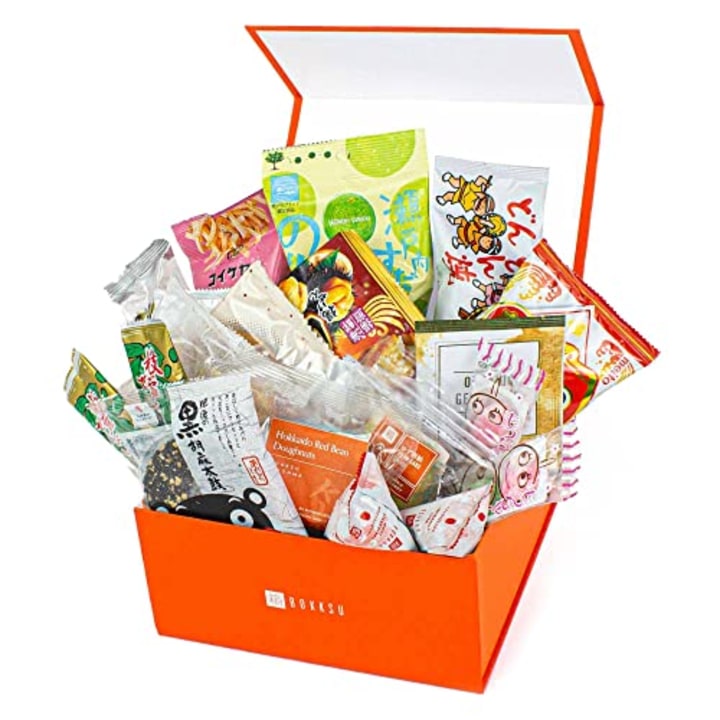
Automic Gold Small Seamless Huggies
Al, Automic Gold’s founder and designer, said they started making their own jewelry because “as a non-binary person I couldn’t find fine jewelry that wasn’t too feminine or masculine that I could fit or afford.” Al said all off the brand’s jewelry is genderless and size-inclusive — it’s made in-house from locally sourced reclaimed materials. It sells bracelets, rings, necklaces and earrings, as well as charms and body jewelry.
These huggie earrings have a click closure and are available to purchase as a pair or individually. You can choose between yellow, white or rose gold.
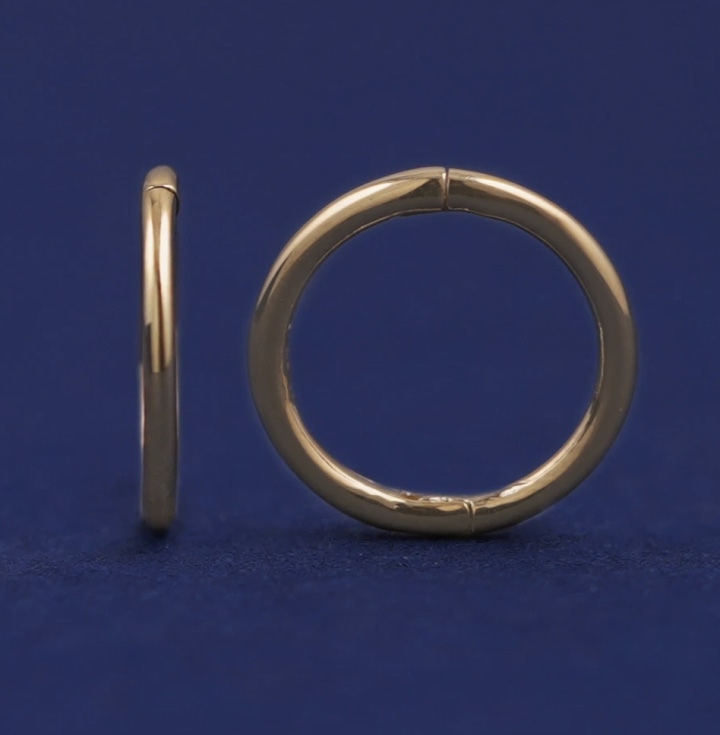
Kirrin Finch Grey Oxford Short-Sleeve Shirt
When Laura and Kelly Moffat, self-described tomboys, were searching for clothes for their wedding, they realized “how difficult it is for women like us to find alternative options to a wedding dress.” “Not being able to find clothes that matched our inner core left us feeling like we were not able to fully be ourselves,” they said. Laura, who also serves as the brand’s director of marketing, said growing up, she and her wife were “often forced to make the choice between poorly-fitting menswear and super feminine womenswear,” and after speaking to women, transmen and non-binary folks, she found that many felt the same. Moffat and her wife quit their jobs to start the clothing company Kirrin Finch, which “aims to fill the gap for gender-defying fashion by creating menswear-inspired apparel designed to fit a range of bodies.”
Kirrin Finch’s Grey Oxford Short-Sleeve Shirt is available in colors like Pink and White. It’s made from cotton oxford fabric and features a collar as well as a nine button front.
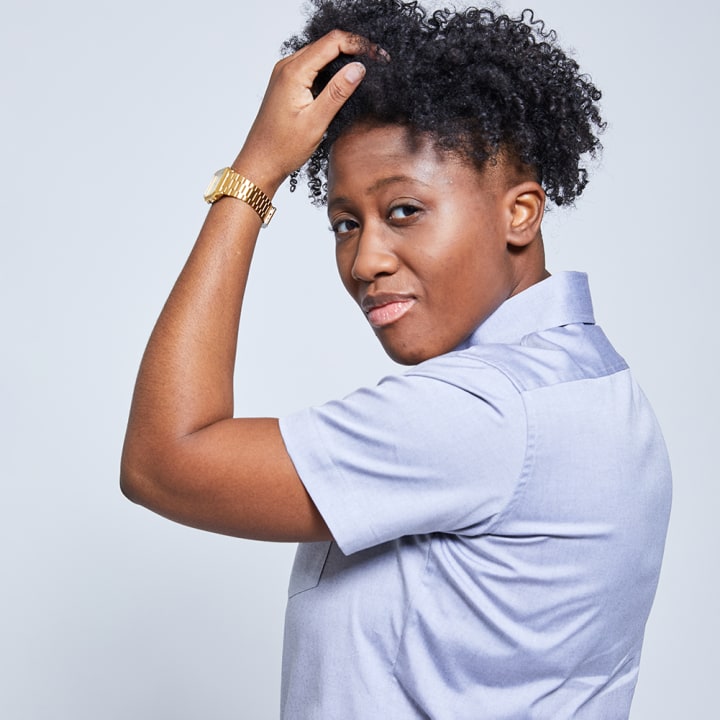
Equator Coffees Equator Blend
Helen Russell and her partner Brooke McDonnell are the co-founders of Equator Coffees, which they’ve run together for 26 years. Russell said she always wanted to own her own businesses and “create the culture that I wanted in a workplace, a place where I could bring my whole self to work. I wanted to run a business with people I loved where we could have a positive impact on everyone in our orbit.”
According to Russell, Equator Coffees has been successful due to its supportive community, but she worries about LGBTQ-owned businesses and the community as a whole, which she noted is often targeted by homophobic legislation. “We are marginalized or overlooked by business communities, and are discriminated against,” Russell said. “I’m a huge fan of LGBTQ+ chamber of commerce and business groups … Diversity in businesses is good for communities and our economy.”
Equator Coffees sells bags of its blends, espressos, cold coffees and instant coffee, as well as brewing equipment, grinders, filters, mugs and more. The brand’s Equator Blend has a chocolatey, nutty and spicy flavor. It’s a medium-dark roast and can be purchased as a 12-ounce, 2-pound or 5-pound bag.
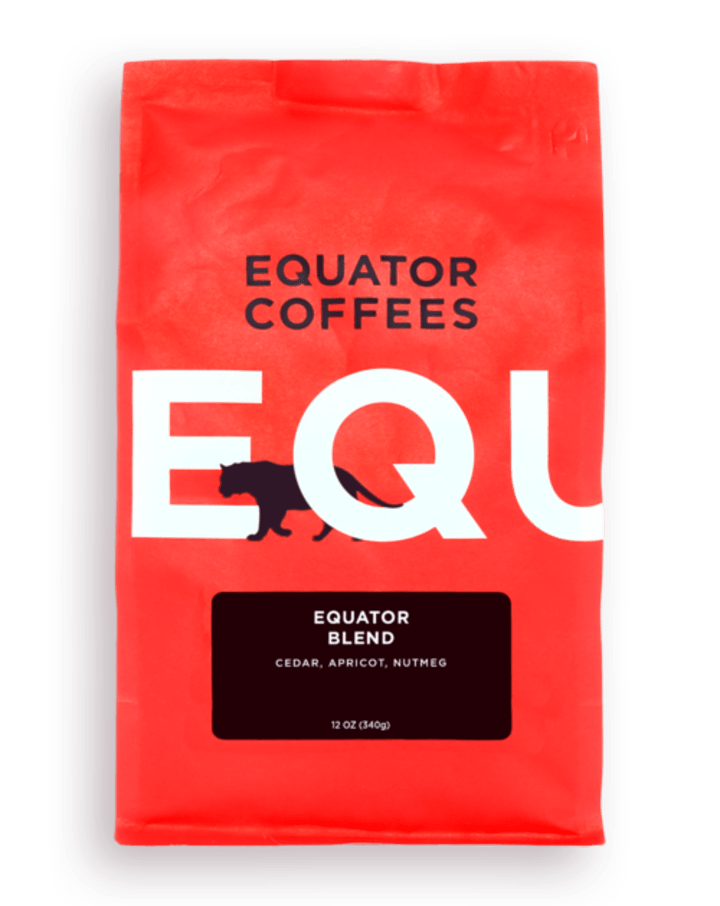
Show & Tell Rainbow Sherbet Lounge Set
Alyah Baker left her corporate retail and merchandising career to start Show & Tell Concept Shop, aiming to share products with customers that she said “reflected my love for BIPOC and LGBTQIA community,” which she wasn’t finding in small boutiques or big box stores. “It is a great privilege to be a Black, Queer, Woman business owner,” Baker said. “I am only able to do this because so many folks have fought hard and paved the way for me to be here.”
Baker said intersectionality and identity are at the core of Show & Tell’s business. Product designs are inspired by the cultural traditions of Black, Queer and feminist communities, and Baker said she strives to celebrate and uplift these communities through what Show & Tell sells and in its business practices.
Show & Tell sells apparel, accessories and home goods, as well as signature collections of candles, head wraps, hand-dyed clothing and more. The unisex Rainbow Sherbet Lounge Set comes with a matching top and bottom and is made from soft cotton blend fabric. It’s available in sizes ranging from Small to Extra Extra Large.
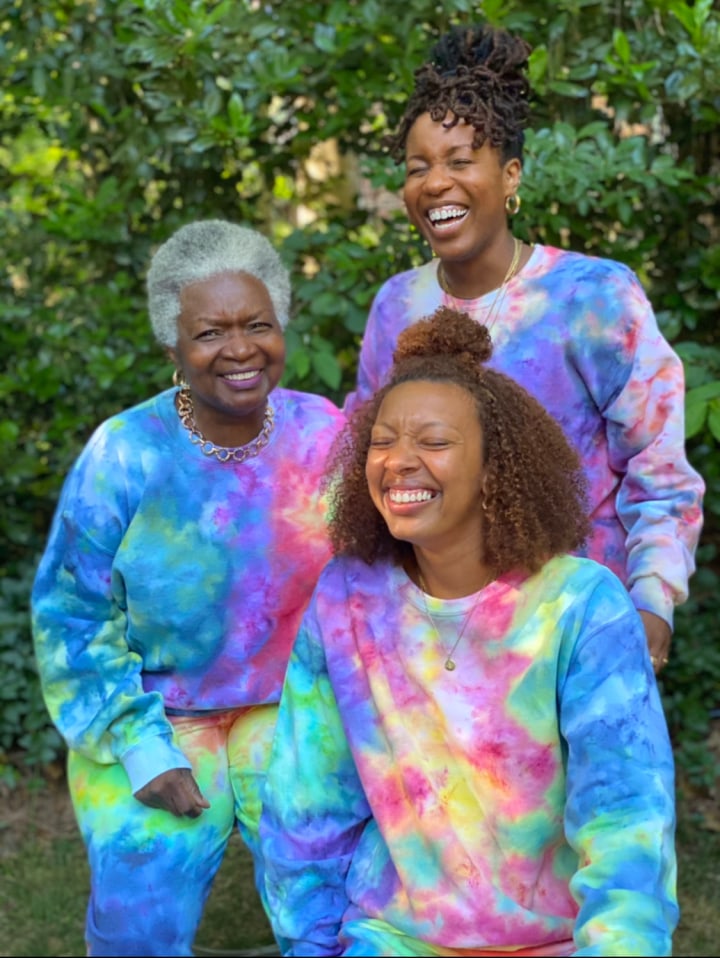
Boy Smells Pride Votive Set
In 2016, Matthew Herman and his partner David Herman started experimenting with candle making in their kitchen. They started calling their venture Boy Smells and packaged their goods in pink boxes to challenge gender norms. “By disregarding the gendering rules of the past, we are to push forward and create new products for modern identities,” said Matthew Herman.
This five-piece set contains the brand’s entire Pride collection, featuring petite versions of the standard candles. These 3-ounce mini candles (Rosalita, Philia, Extra Vert, Ambrosia and Dynasty) are made from natural white coconut and beeswax. Additionally, the company will donate 10 percent of the sales to The Trevor Project, an organization that works to provide suicide intervention to LGBTQ youth.
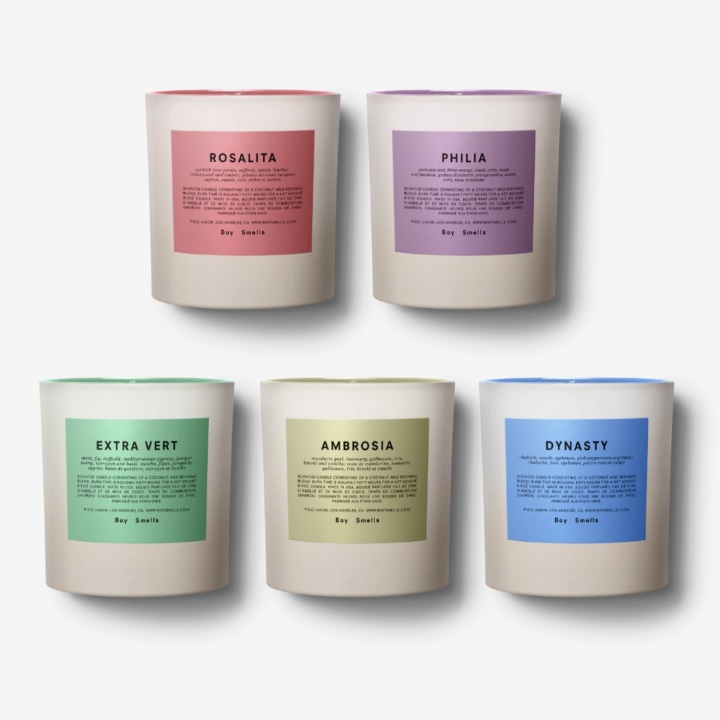
Pink House Alchemy Toasted Caramel Simple Syrup
Pink House was started at the farmers market when founder Emily Lawson was working at a local coffee roaster. She bought lavender from the booth across from her and started making lavender syrup for her lattes and lemonades. “As a woman-owned business, you already are on the outside of the ‘handshake’ boys club model of doing business,” she elaborated. “The added layer of being a member of the LGBTQ+ community reduces that access considerably.”
Despite their initial obstacles, Pink House has found success. The brand’s Toasted Caramel Simple Syrup is an Amazon’s Choice and has a 4.7-star average rating from over 25 shoppers. It only contains natural ingredients and no additives or dyes.
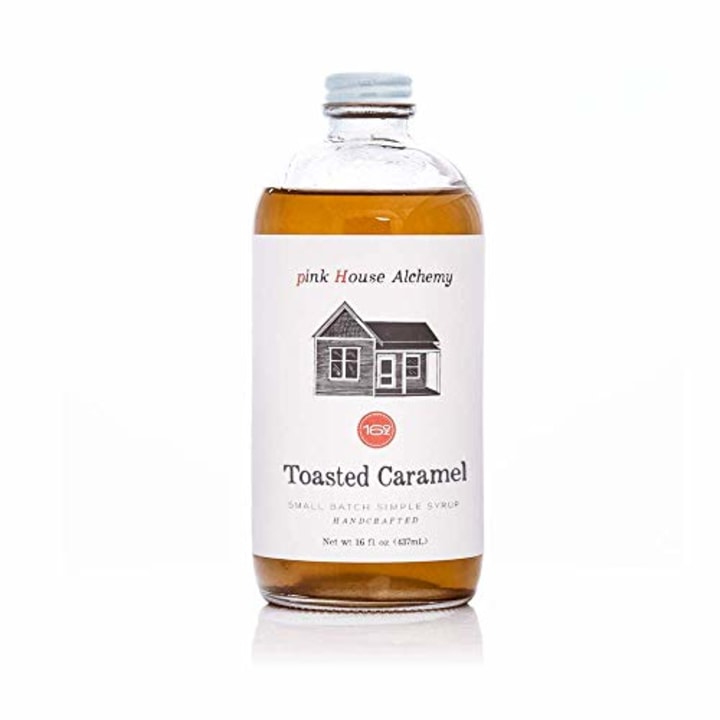
Ghost Democracy Cocoon Replenishing Ceramide Rich Cream
Ghost Democracy offers direct-to-consumer clean skincare products that remove the retailer profit markups. After working in various big beauty corporations for the past decade, Rex Chou decided to found his own company. “It’s more important than ever to demonstrate that inclusivity to the consumer: Representation matters and is so impactful,” said Chou.
Free from silicones, oils and fragrances, this cream from Ghost Democracy works to deeply moisturize and replenish the skin and its texture. It is non-greasy and quick absorbing, according to the brand. Good for all skin types, the brand recommends you apply directly to clean skin every morning and night.
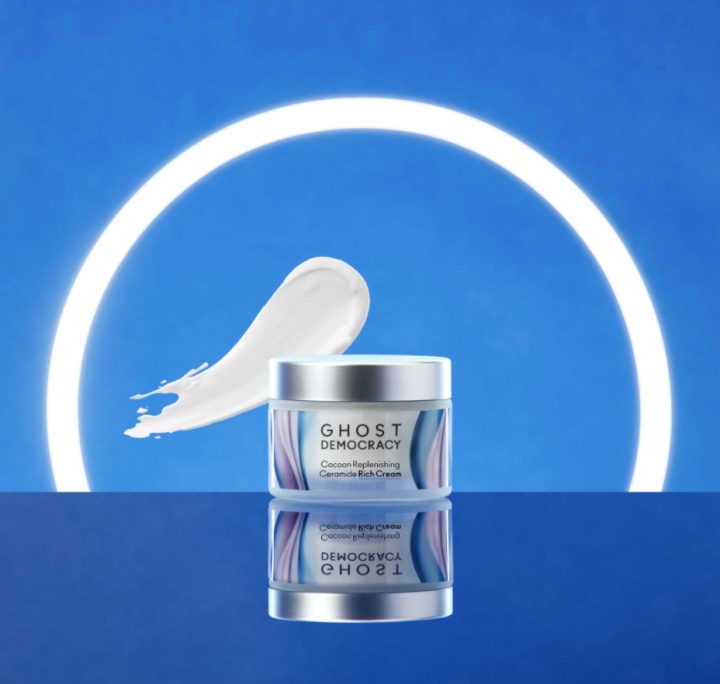
Andie Swim The Byron One Piece
Melanie Travis founded Andie Swim back in 2016 out of a passion to create a supportive swimsuit that women could comfortably move in. Now, the brand’s collection has expanded to over 40 swimsuits and is wear-tested on over 300,000 women.
Andie’s newly launched leopard printed swimsuit in collaboration with Claire Holt has removable cups, medium bust support and medium bottom coverage. Additionally, if you have any fit questions or sizing help, you can schedule a fit consultation with one of Andie’s Fit Experts.
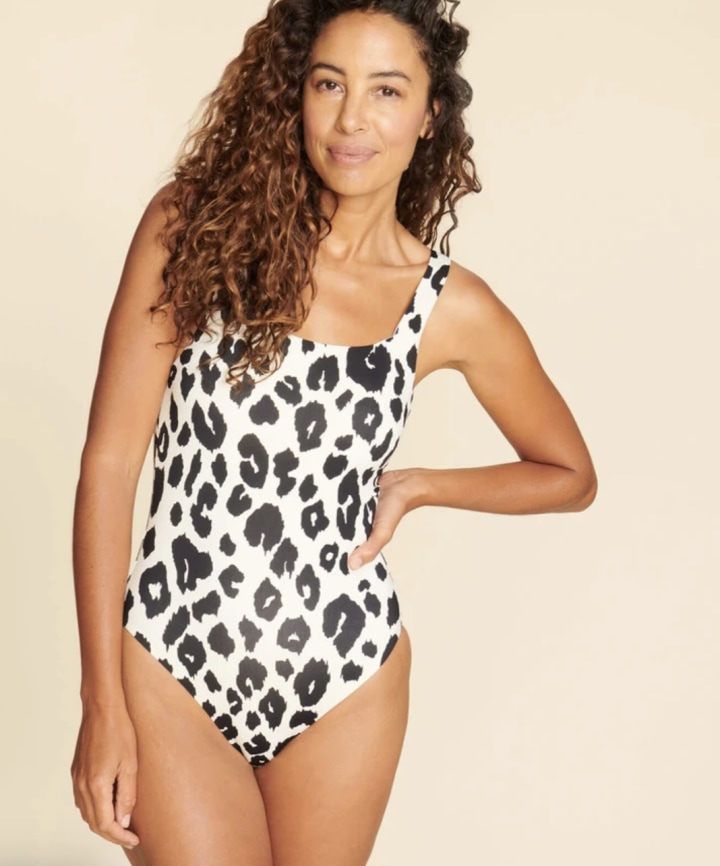
LGBT-owned brands: Clothing, beauty and more
Since there’s limited information out there on LGBTQ-owned businesses, we reached out to all the brands and asked them to confirm that at least 51 percent of the company is owned by someone who identifies as part of the LGBTQ community, per the NGLCC’s definition mentioned above.
LGBTQ-owned fashion and apparel brands
- Andie Swim
- Automic Gold
- Gay Pride Apparel
- Kirrin Finch
- One DNA
- Private Policy
- TomboyX
- Wildfang
LGBTQ-owned beauty brands
- Alder New York
- Freck Beauty
- Ghost Democracy
- Malin + Goetz
- Peace Out Skincare
- Sigil
- We Are Fluide
LGBTQ-owned home and kitchenware brands
- Boy Smells
- Culture Flock
- Ink Meets Paper
- Lockwood
- Mixture
- Show & Tell
LGBTQ-owned food and drink brands
- 1821 Bitters
- Bokksu
- Equator Coffees
- Pink House Alchemy
LGBTQ-owned bookshops
- Loyalty Bookstores
- Northwest Press
- Two Minds Press
Data on LGBTQ-owned businesses — and the lack thereof
Data on LGBTQ-owned businesses in the U.S. is scarce. The NGLCC told us they’re working with multiple federal agencies — including the Department of Commerce and the Small Business Administration (SBA) — to rectify this federal data gap, although a specific timeline isn’t clear at this time. The nonprofit helped pass legislation ensuring federal procurement is inclusive of the LGBTQ community in over 25 states and cities across the country — including Chicago, Miami, Houston and New York City — and advocated for the passage of the LGBTQ Business Equal Credit Enforcement and Investment Act, which would require financial institutions to collect LGBTQ small business loan data (House Republicans struck down the bill this month).
The most recent report illustrating LGBTQ business data is NGLCC’s America’s LGBT Economy, released in early 2017 and the first-ever snapshot of the economic and social impact of LGBTQ business owners and entrepreneurs in the U.S. It studied the then-909 certified LGBTBEs, finding:
- LGBTBEs have an average revenue of $2.4 million per year
- Most LGBTQ enterprises have been in business for at least 12 years — above the national average
- NGLCC-certified employers created a total of 33,000 jobs
- LGBTBEs contributed over $1.15 billion to the U.S. economy in 2015
Federal agencies like the SBA, the Census Bureau and the Bureau of Labor Statistics confirmed to us that they don’t have data on LGBTQ-owned businesses and aren’t actively collecting it. As the SBA noted in an email, LGBTQ isn’t tracked as a demographic the same way that AAPI- or Black-owned businesses are.
America’s LGBTQ business owners “create tens of thousands of new jobs in every industry sector — and yet, even the most basic information about the health and success of our LGBT entrepreneurs is not yet collected by the federal government,” said Nelson.
To fill the gap in data, NGLCC plans to conduct the same research in 2022 (for its 20th anniversary). But, like most stats on the LGBTQ community, the numbers have been and will likely continue to be limited and not effectively reflective of LGBTQ-owned businesses that remain outside of the NGLCC’s radar.
The Census Bureau told us in an email they don’t have specific data on LGBTQ-owned businesses, but they’re working with federal statistical agencies and others on how to measure gender identity and sexual orientation on their surveys. In recent years, the Bureau added new questions about sexual orientation to their surveys for other agencies and collects information about same-sex households in their demographic surveys. However, it notes this isn’t a comprehensive measure of the LGBTQ population.
What’s hindering federal data collection for the LGBTQ community? First, new questions need to go through a review process that tests wording so they’re well understood and provide accurate results — the Office of Management and Budget approves these and, according to the Census, another federal agency can initiate that process by demonstrating a statutory or regulatory need for the data. The National LGBTQ Task Force, a nonprofit adovcating for LGBTQ rights and inclusion, has been advocating for nearly 30 years to ensure LGBTQ people are represented in the Census and other federal surveys through their Queer the Census campaign.
Meanwhile, the Bureau said they’ve identified areas that need research, including whether people would be willing and able to respond about sexual orientation and gender identity for other members of their household and how that would affect the results, along with appropriate wording to accurately reflect identities.
Some research centers like the Williams Institute do collect and provide data on the LGBTQ community, but that may not be enough to make real change — or enough to get federal attention on important LGBTQ-specific issues. “It’s important for us to get this data to really understand the whole breadth and diversity of our community,” said Cathy Renna, the communications director for the National LGBTQ Task Force. She said it’s not just about “diversifying the questions” or even “sexual orientation or gender identity — it’s also about race, economic status and issues like homelessness.”
The SBA told Shopping their Network for LGBTQ Businesses focuses on “assistance for the LGBTQ community through training, contracting and networking with organizations that [provide] support with counseling and mentoring.” This includes joining the local NGLCC affiliate chambers that have a strategic alliance with the LGBTQ business community, including (but not limited to):
According to the NGLCC, local membership to these chambers can help promote and grow LGBTQ businesses by forming a strong local network, complete with active directories to make it easier to find certified LGBTQ owned businesses.
Catch up on the latest from NBC News Shopping guides and recommendations and download the NBC News app for full coverage of the coronavirus outbreak.
